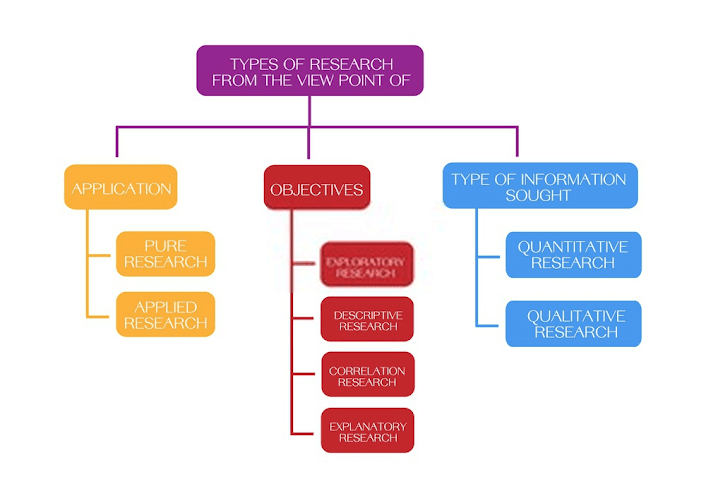While being a writer has its own merry perks, the process of writing can sometimes entail irregular terrains in the form of unexpected challenges. Writer’s block, plot holes, and distractions represent just the tip of the iceberg when it comes to writing texts of comprehensive lengths.
One of the major aspects of the entire methodology of writing a book is researching. Not only does it include traditional research happening in a library, but it also involves interviewing experts, freewriting to clarify thoughts, looking for data, or simply talking to your peers.
Precisely, the research stage while writing a book hosts any arbitrary activity related to gathering thoughts, data, and insights on the concerned subject.
The process is further streamlined by tools like Scrivener, which is a popular choice of an alternate word processor. Such tools facilitate note-taking, brainstorming, research, and a myriad of other things that go into writing a book.
Now that the prominence of researching in book writing has been established firmly, it makes sense to look at the major hurdles that writers usually face. Let’s spell them out one-by-one and try to understand them inside-out.
Abundance of Information
With the advent of technology and the democratization of knowledge, the rate at which data is piling up is simply astronomical. It is easy to get lost in the flood of information that’s available at a button click and lose sight of the core concept driving the exercise.
The right way to carry out exploratory research is to start collecting ideas and thoughts, which will condition your brain to look for related examples and interesting tangents. However, this is easier said than done.

With the plethora of options and avenues to explore, it might happen that you end up in an alleyway you never wished to enter. Therefore, it is important for writers to prime their minds to notice ideas and insights about relevant topics only.
Make a mental note to only acknowledge perceptions that are bound to nudge your creative juices in the direction. And as importantly, get rid of anything that’s remotely irrelevant and/or clogs up your thinking tunnels.
Limitless Roadmaps
After carefully determining if there’s a viable book in that research, there remains a length list of questions that need answering.
Some of them can be: Does it make sense to pursue? Does there exist an audience who might resonate with this? Can you conjure a new and unique angle? Will it be an interesting writing experience? and so on.
Since writing a book demands considerable time and energy, it is advisable to analyze all the available choices before committing to one particular direction.
Writes often tend to get entangled in this mess and end up losing precious enthusiasm early on in this marathon. And it goes without saying that the path you chose defines the end product in a pivotal manner.
Obstinate Perfectionism
If you tend to be reluctant about releasing anything to the world until it screams perfection, it can eventually prove to be your undoing. The key is to realize that your research cannot and will not be perfect from all perspectives. And that’s perfectly fine.
Trust in the process and have faith in your intuitive decision making. In time, you will witness things moving at a fairly smoother and quicker pace.
Stay organized by making a detailed list of sources, assembling and reading the necessary books and articles, and scheduling interviews, but steer clear of unnecessary compulsion that might stall operations. Be clear not to muddle with obstinate perfectionism and procrastination.
Lack of Intention
This can occur in multiple shapes and forms. Be it a lack of confidence, productivity, or ideas; you are always susceptible to fall in an infinite during the research stage of writing a book.
This is largely triggered by an environment and mindset that might not be conducive to deep thinking. And as a result, potential directions might start to seem like dead ends.
And if you’re a budding writer, then the fear-induced from a lack of inspiration is one major factor that brings about a lack of confidence in the long run. Furthermore, this glaring lack of intention and will to inch forward is internal and has absolutely nothing to do with skills, age, or reputation.
Prolonged exposures to such debilitating mindsets can degrade your passion for the art of writing. Even though it is common knowledge that researching can take a toll, there exist no bonafide workarounds for carrying out this indispensable task.
Unorganized Documentation
Whenever you stumble upon a key piece of research, it is of utmost importance that you are also able to track it down later, when in need. Implementing an organized form of documentation is one of the most underrated challenges faced by writers.
Simply compiling all resources in one place can be of huge help. Whether you do this with a virtual folder on your laptop, an actual folder on your desk, or with the aid of online tools, the idea stays the same.
Organization in the initial stages will make adding research to your manuscript later far easier and quicker than if done otherwise. The benefits of simple categorizing techniques cannot be understated.
A good book brings all the research together in a concise manner, and systematic management will ensure that nothing slips through the crack during the final compilation.
Conclusion
Screenplay writers rely on tools like Final Draft that offer features, tools, and abilities designed to help them write that screenplay with ease and efficiency. In a similar fashion, modern-day book writers are inclining towards professional writing software to enhance their output and calibrate their flow.
Aided by technology and creativity, writers are able to transcend all limitations that ever existed. And tedious procedures like researching and compiling do not seem as daunting as they used to be.
However, many writers fail to publish or even begin drafting their books as they end up getting stuck in the research process. Identifying and fixing those challenges will not only save you time during the research process and help you to finish your manuscript as fast as possible but also give you that sense of completeness and thoroughness once it’s done.






















